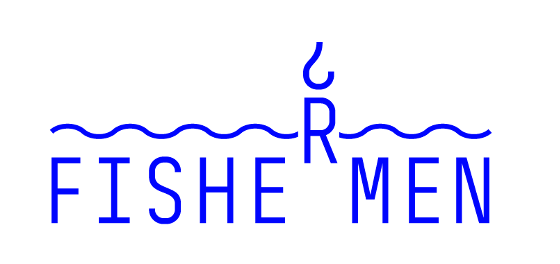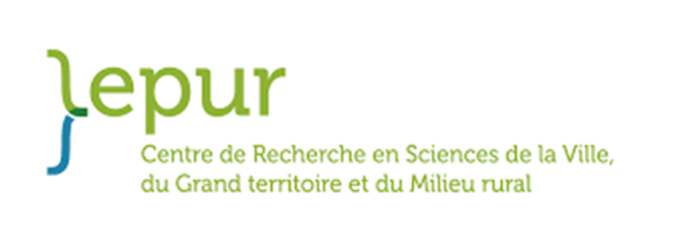Project Description
The project aims to develop a toolkit to make all e-commerce in a city to be organized sustainably and emission-free and to promote a level ecological playing field for all actors. The study also examines which tools of local governments can contribute to such sustainable parcel logistics.
How to use this website ?
1. Areas
The "Areas" section provides an overview of the different areas and their descriptions. Users can select an area to view all the measures applicable. Once the measures are displayed, it is also possible to go further by selecting a measure to display its characteristics, such as measure name, description, main objective, potential areas of application, skill level, implementation (Push/Pull) and cost (Soft/Hard). Simply click on "Back to areas" to return to the initial section.
2. Categories
The purpose of this section is to define the 6 measures' categories. The user can also display the list of measures in a category by clicking on its name. Once the list of measurements is displayed, selecting a measure allows you to view its characteristics. Click on "Back to categories" to return to the initial section.
3. Measures
The "Measures" section displays all existing measures in the toolkit. As in the "categories" section, click on the measure name to display the characteristics. Simply click on "Back to measures" to return to the initial section.
4. Toolkit
The last section is the toolkit. The user must select one or more criteria according to the needs. It is possible to select up to 5 criteria containing several proposals.
- Areas
- Tertiary urban
- Dense urban
- Suburban
- Mixed Peri-urban area
- Residential Peri-urban area
- Level of competences
- Local
- Regional
- Federal
- Private
- Categories
- Stakeholders' engagement
- Regulatory measures
- Market-based measures
- Land use and infrastructure measures
- New technologies
- Eco-logistics awareness raising
- Cost
- Soft (Low cost of implementation)
- Hard (High cost of implementation)
- Implementation
- Pull (Enforcement)
- Push (Incentive)
By submitting the selected criteria, the tool displays the measures corresponding to this selection, along with their descriptions. By clicking on the measure name, you can display the characteristics listed above. Click on "Back to Toolkit" to return to the initial section.
Consortium

The VUB Mobilise Mobility and Logistics Research Group is a leader in research on the socio-economic aspects of urban mobility & sustainable logistics with 35 researchers with an interdisciplinary profile. We have significant experience in working with urban stakeholders on topics such as policy impact analysis, foresight, participatory planning methods, equity assessment and inclusive transport. Over the last 5 years, the group has undertaken 29 projects (co)funded by European, national and regional authorities (e.g. IWT, VLAIO, Innoviris, BIM, FWO, …) and by industries (COMEOS, Colruyt,…). VUB Mobilise has significant experience in working with urban stakeholders on topics such as policy impact analysis, participatory planning methods, equity assessment and inclusion. Our mission is ‘to accelerate the transition to a more sustainable and inclusive mobility and logistics system’. More information can be found: https://mobilise.research.vub.be/

Fishermen was founded to embrace the synergy of innovation and positive change. Operating as an atelier the focus is on providing hands-on services for projects that have a meaningful impact on the world. Fishermen is represented by Johan Peeters.
Johan is a seasoned professional with extensive experience in driving positive change. His expertise has earned him a reputation as a go-to expert for sustainable last-mile services.
For the bpost group he delivered an innovative concept for emission-free parcel delivery that has already earned the Environmental Achievement of the Year award (2021), and is featured in the World Economic Forum's toolbox for decarbonizing urban ecosystems. Verified results from the University of Brussels (VUB-MOBILISE) have shown that his approach is not only sustainable but delivers real benefits to cities worldwide.
His commitment to making a positive impact on the world is evident in his work. His ability to bridge cooperation between industry leaders, government officials, and local inhabitants has produced a vast amount of applicable insights that can be put to work for cities all over the world.

The University of Liège is represented by two teams: one from the School of Management (HEC) and another from the Faculty of Applied Sciences (FSA) and and the Lepur research center.

Within HEC, Sabine Limbourg is a Logistics professor and Vice President of Logistics in Wallonia. She leads the specialization "Global Supply Chain Management," focusing on research related to the sustainable development program adopted by all UN Member States. Her research has contributed to the improvement of decision support systems. For bpost, Tanguy Baiwir has developed a decision support tool for optimal choice between different means of transportation, including cargo bikes and utility vehicles. The tool considers various parameters to define the optimal environment for their usage, and it evaluates new logistics solutions, including suitable infrastructures. Sabine Limbourg and Tanguy Baiwir are currently involved in the development of new economic models based on collaborations that share data or resources of operators (e.g., cyclo-logistics, interurban) to cover a broader market and generate economies of scale while reducing environmental impacts.

At the FSA level, Professor Jacques Teller (Urban Planning and Regional Development) and Scientific Director Bruno Bianchet (Territorial Development) complete the team. Bruno Bianchet specializes in territorial development, particularly in the areas of local economic development, including commerce and management of urbanized territories. He has excellent knowledge of local actors, both public and private, and leads research activities related to economic development and urban dynamics within the framework of the Permanent Conference on Territorial Development (CPDT). He also oversees actions related to the City Policy, including the Platform of Walloon Cities and the Contact Point for the URBACT Program. Jacques Teller is a professor of urban planning and regional development and heads the LEMA team, which is part of the Urban & Environmental Engineering research unit. He is a member of the scientific committees of the Efficacity Research Institute and the Chair in Eco-design of Built Environments and Infrastructures. His research focuses on inclusive and sustainable cities at various scales and is oriented towards governance models adapted to contemporary urban challenges. He has worked on the interaction between mobility and urban planning in various research projects for the CPDT and FEDER projects (Wal-e-Cities MOV).
